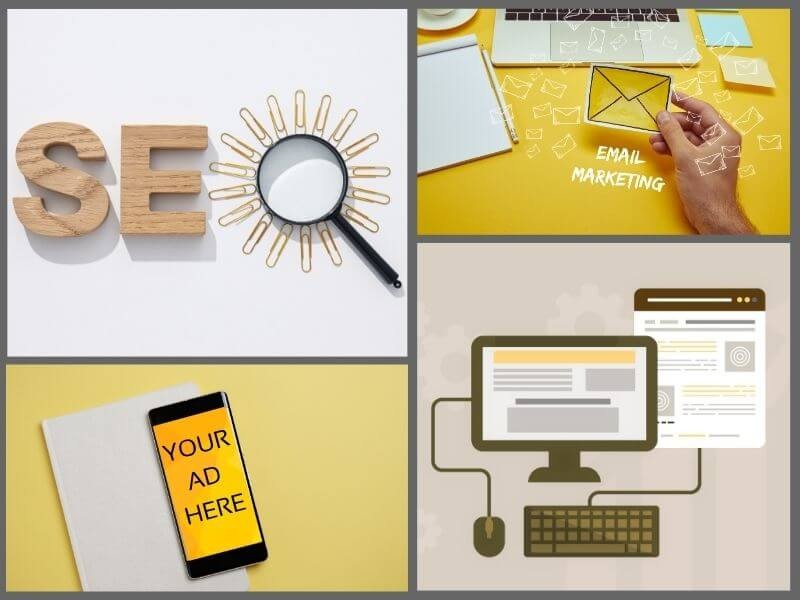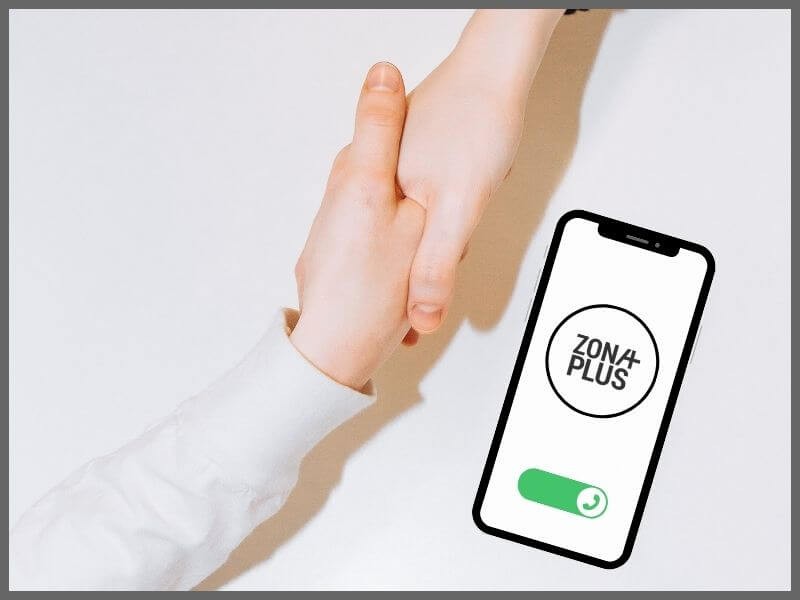
In digital marketing, you’ll often hear terms like SEO, CTR, leads, pixels, and remarketing… Feeling lost among those terms? Have questions? Wondering what you can do for your business? You’re not the only one. For real answers, you need a digital marketing agency.
Many people come into contact with a digital marketing agency for the first time because they want to increase sales, improve online visibility, or simply do something on social media.
But before you send that first inquiry, you need to know exactly what you're looking for and from whom.
A digital marketing agency helps you position yourself better online, attract more customers, and, of course, increase sales.
Their job is not just to “make you present online,” but to ensure that presence has meaning, purpose, and delivers results.
Instead of trying to do everything yourself—monitoring, testing, and adjusting—working with an agency saves you time, energy, and money.

Let’s take a look at what exactly an agency does:
Imagine you run a beauty salon, for example, in Rijeka. Someone types “gel polish Rijeka” into a search engine. If your site doesn’t show up among the first results, there’s a high chance the business will go to the competition.
SEO is all about how your site appears in search results.
This includes technical website adjustments, writing helpful content, and linking to other websites that Google recognizes as trustworthy sources.
Paid ads can be shown to people who are already interested in what you offer.
Let’s say you rent out apartments. With the help of ads, you can target people in Germany who have recently searched for holidays in Croatia and are already visiting travel-related websites.
Ads can be customized by language, location, user habits, and many other criteria.
Social media isn’t just posts with pictures and a few sentences.
A quality presence means having a plan, strong visual presentation, and communication with people. If, for example, you run a spice shop, a good agency can help you design a weekly posting schedule—recipes on Mondays, helpful tips on Thursdays, special offers on Saturdays.
In addition, the digital marketing agency will prepare the visuals, write the posts, and can even reply to comments on your behalf.
Do you have a list of old customers or clients but haven’t communicated with them for some time—or ever? Or are you already sending a newsletter, but no one opens it and it remains unread?
Through email marketing, you can reestablish contact with your audience.
If, for example, you run a language school and are preparing new enrollments, you can send a personalized email to former students with an invitation to register and a referral discount. Such an email has a higher chance of being opened and acted upon.
Your website is often the first impression people have of your business.
If it loads slowly, is confusing, or looks like it was made 15 years ago, people will leave quickly.
An agency can suggest improvements, build a new website, or adapt the existing one.
Let’s say you sell handmade jewelry and currently only have a basic website with contact info or links to social media. With professional help, you can have a modern website with your brand story, a photo gallery, and an online shop.

Some agencies offer a full service, while others focus only on Google ads or social media management and the like.
Neither option is wrong. What matters is that you know what you need.
If you don’t know that yet, don’t worry. An experienced advisor will know the right questions to ask to help you reach a smart solution together.
If you’re a business owner tired of guessing and want someone to look at your situation and suggest realistic solutions, you need someone who has experience with small and medium-sized businesses, doesn’t overcomplicate things unnecessarily, and knows what can be done with the budget you have.
Working with a digital marketing agency shouldn’t be just about choosing a ready-made package. Instead of going for a “package” because “that’s what everyone does,” ask a few simple but important questions:
You’re not looking for an agency that has worked for your competition, but experience in similar fields can be an advantage. For example, if you offer services locally, an agency that has worked with tradespeople, salons, or rental apartments will likely know how to better attract people from your region.
That means more concrete suggestions right from the start.
Ask how they come up with the proposals they send you. Do they research the market? Do they monitor the competition? Do they rely on data, and what kind?
It’s a good sign when they explain why they suggest something, not just what should be done. If they insist on frequent social media posts, ask: does that make sense for my type of audience?
If the agency only talks about views, likes, and comments—look further.
The real indicators depend on your goals. Do you want more inquiries through the website? Direct bookings? Webshop sales?
The agency should know how to improve those numbers and how to track them.
Ask who your contact person is and who will be working on your content, ads, or social media.
In some agencies, it's an in-house team, in others external collaborators. Neither is bad, but you should know who you’re addressing and how available they are.
If the communication is reduced to “contact our support email” and you can’t get through to a real person, that’s not good at all.
That’s totally fine. What matters is that the agency listens to you and asks the right questions.
If they immediately start with “you need TikTok, Google ads, and a newsletter” without hearing what you do and who your audience is, they probably offer the same solutions to everyone.
A good agency won’t overwhelm you with offers and numbers but will first help you figure out what makes sense for your business.
Ask what happens when you say “let’s begin.”
Do you need to prepare materials, and what exactly? How long does it take to set up a campaign? Do you receive regular reports or only final results?
The initial phase often reveals how organized the agency is and how seriously they take your (and their) work.
It’s not a bad idea to ask this from the start. A good agency should explain how they handle situations when things don’t go as planned.
Do they have a contract with a cancellation period? Are there clear checkpoints for assessing progress?
Agreeing on the option to end the collaboration isn’t a sign of mistrust, but a sign of responsibility on both sides.
Some think they can just send a short business description to the agency and it will take over everything. In reality, collaboration also requires your involvement, at least in the beginning.
Ask the agency whether you need to send them photos, approve posts, or be available for questions.
You might not phrase the question exactly like this, but through conversation, you can learn whether they tend to “sugarcoat” results or openly tell you when a campaign isn’t performing as expected.
Trust is built through honest communication, not just glowing reports.
If the digital marketing agency answers most of these questions meaningfully, clearly, and without rushing, you’re on the right track.
If they avoid specific answers, change the subject, or just send you a PDF presentation without a personal conversation, they may not be the right fit for you.
You’re not alone here either. Many small business owners think an agency isn’t for them because “they don’t have thousands of euros per month.” But even with a smaller budget, you can do a lot—what matters is knowing what’s realistically possible.
In any case, the agency might also offer workshops, consultations, or create templates for social media that you can use on your own.
The point is that you won’t get everything all at once, but you can start smart.
The right agency will tell you where it’s wisest to invest your budget and what you can expect in the first month or two. If they send you a proposal with ten services, half of which seem unnecessary to you—stop. It’s better to do one thing well than five things half-heartedly.

Before you decide who to work with and how, it’s good to understand the differences.
You need a solution that best fits your situation.
If you don’t have much experience, it’s easy to assume that “cheaper” also means “smarter,” or that a bigger agency guarantees better results. In reality, everything depends on your goals, budget, and the type of work that needs to be done.
Positive sides of a digital marketing agency:
Negative sides of a digital marketing agency:
Positive sides of freelancers:
Negative sides of freelancers:
Positive sides of signing a long-term contract:
Negative sides of signing a long-term contract:
Positive sides of project-based cooperation:
Negative sides of project-based cooperation:

Digital marketing is not something you should simply “deal with.”
It should be a part of your everyday business. That’s why it’s important that the people you hire don’t communicate with you just once a month for reporting, but that you have a relationship where someone follows your progress, understands the context, and helps you make decisions.
The best results come when an agency isn’t trying to sell unnecessary services and when you don’t receive cookie-cutter solutions, but recommendations based on your business.
Sometimes they’ll tell you things you don’t want to hear—that something isn’t profitable or that it’s worth waiting another month. Such a collaboration can last for years, and it’s built on trust, not on the number of weekly posts.
If you’re looking for a digital marketing agency that speaks “your” language and doesn’t skip important details, Zona plus is one of the names worth knowing.
We don’t offer ready-made packages for everyone—we listen, ask questions, and make suggestions.
If everything you’ve just read makes sense to you and you want to talk with no obligation, get in touch with us.
And if you’re not ready for a collaboration yet, but would like to receive useful tips from time to time, sign up for our newsletter.